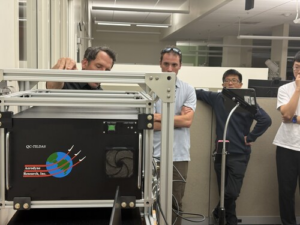
The AFL Coaches Association has been labeled a “paper tiger” by St Kilda coach Ross Lyon, amid ongoing controversy over football department funding. Lyon’s comments come as the AFL faces criticism for not restoring soft-cap spending to pre-COVID levels, raising concerns about the future of coaching in the league.
Speaking at Adelaide’s Glenelg Oval, Lyon expressed his concerns about the broader implications of the funding shortfall. “The game is in rude health, I don’t get stuck in it too much,” he remarked, emphasizing that the issue extends beyond coaches to include sports science specialists, physiotherapists, doctors, and psychologists who support player development.
Lyon’s pragmatic stance reflects a growing frustration among AFL coaches. “I’m certainly not an activist because I think in the end, head office will do what they do,” he stated. He further criticized the AFL Coaches Association, describing it as lacking the influence needed to address the funding gap. “Otherwise if we had muscle, do you reckon we would be $1.5 million down in the soft cap?” he questioned.
Background and Context
The AFL’s decision to reduce the soft cap on football department spending was initially a response to the financial challenges posed by the COVID-19 pandemic. However, as the league’s financial health has improved, calls for a return to pre-pandemic spending levels have intensified. The soft cap reduction has affected various aspects of team operations, from coaching staff to player support services.
Lyon is not alone in his criticism. Essendon coach Brad Scott has also voiced concerns, highlighting a sense of disenfranchisement among coaches. “I really worry about the next wave of coaches … because you have got to work at it, you have got to develop your craft,” Lyon noted, echoing Scott’s sentiments.
Expert Opinions and Reactions
The AFL’s football operations chief, Laura Kane, acknowledged the grievances expressed by coaches. On Thursday, she stated that the league is aware of the concerns and is considering the implications of the current funding structure.
Experts in sports management suggest that the funding issue could have long-term impacts on the development of coaching talent in the AFL. “The reduction in resources not only affects current coaches but also discourages potential new entrants to the profession,” said Dr. Michael Thompson, a sports management lecturer at the University of Melbourne.
“The reduction in resources not only affects current coaches but also discourages potential new entrants to the profession.” — Dr. Michael Thompson
Looking Ahead
The debate over football department funding is likely to continue as the AFL navigates its post-pandemic recovery. Coaches like Lyon and Scott are advocating for a more equitable distribution of resources to ensure the long-term health of the sport.
Meanwhile, the AFL Coaches Association faces a critical juncture. As Lyon pointed out, the association’s ability to influence league decisions is under scrutiny. The question remains whether it can galvanize support and push for meaningful changes in the funding landscape.
As the AFL season progresses, stakeholders across the league will be watching closely to see how this funding dispute unfolds. The resolution of this issue could set a precedent for how the AFL balances financial sustainability with the needs of its coaching and support staff.






